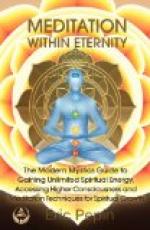It is admitted that those who have experienced liberation, illumination, mukti, have reported their sensations with such relative vagueness and with such apparent variance of conclusion as regards the meaning of the experience that the reader is left to his own interpretation of the character of that state of being, other than a general uniformity of description.
Referring to the pleasure which the lower nature feels under certain conditions, the late Swami Vivekananda says:
“The whole idea of this nature is to make the soul know that it is entirely separate from nature and when the soul knows this, nature has no more attraction for it. But the whole of nature vanishes only for that man who has become free. There will always remain an infinite number of others for whom nature will go on working.”
But did Vivekananda employ the phrase “nature has no more attraction for him,” to describe the sensation of unappreciativeness of the wonders of the natural world? We think not. Rather the gentle-hearted sage meant to report the fact that the soul is no longer held in bondage to the external world, when it has once attained supra-consciousness.
If this expression referred to the pleasure the true lover of nature feels in the out-of-doors, he might well say “I trust that I shall never attain to that state of consciousness. Or if attainment be compulsory, then shall I prolong the time of accomplishment as long as possible.”
And who would blame him? Why should we strive for the attainment of a state of being described so unattractively as to give us the impression of entire loss of so enjoyable and unselfish a sensation as love of nature?
The Vedantic idea, according to interpreted translations is that out of The Absolute, the All (Om), we come, and therefore back to it we go, being now in our present state of consciousness, en route, as it were to return.
But returning to what? That is the unanswerable problem of all religions; all philosophies; all science. If we return to a void, such as some interpreters of the Vedas declare, then surely this urge within mankind toward this annihilatory state would hardly be expected. It would be inconsistent with that instinct of self-preservation which we are told is the first law of nature.
Compared to this Vedantic concept of the Absolute, the Christian’s simple, and very empirical ideal of eternal happiness is preferable.
To walk streets paved with gold and play a harp incessantly while chanting doleful praises to a Deity who ought to become wearied of the never-ceasing adulation, would still be a more desirable goal of our strife, than that so inaccurately and unattractively described by many students of Oriental religions and philosophies as the state nirvana, or samadhi.
Again quoting from Vivekananda’s Raja Yoga:




